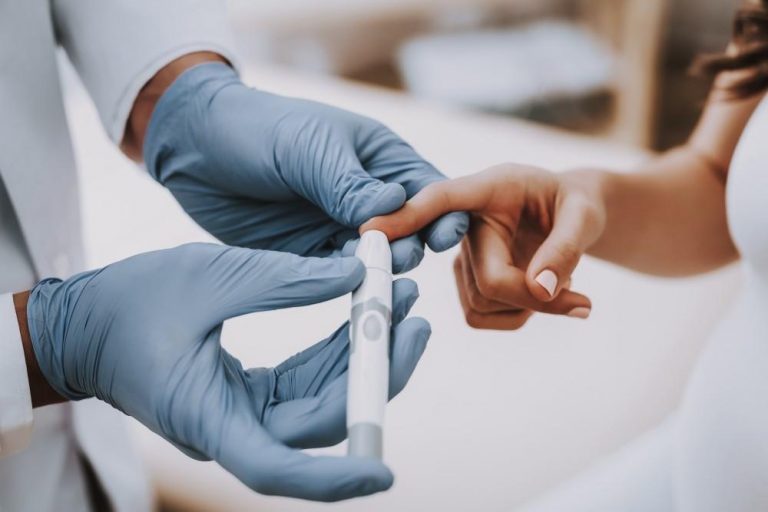Diabetes screening is a crucial procedure designed to identify individuals who may be at risk of developing diabetes or who might already have the condition without obvious symptoms. This proactive measure is vital for early diagnosis and effective management, leading to better health outcomes and an improved quality of life.
Understanding Diabetes Screening
Diabetes screening involves testing individuals who may not show clear symptoms of diabetes but could still be at risk. This process typically includes measuring blood glucose levels through various tests. Screening is especially important for those with risk factors such as a family history of diabetes, obesity, or a sedentary lifestyle. By identifying at-risk individuals early, My Blanket Health can offer preventive measures and treatments before the condition progresses.
Benefits of Early Detection
Early detection through screening provides significant benefits, including preventing or delaying the onset of severe complications such as cardiovascular disease, nerve damage, or kidney problems. Identifying diabetes early allows for timely intervention, which can include lifestyle changes and medication to manage blood sugar levels effectively. My Blanket Health plays a key role in facilitating this early detection and subsequent management.
Different Methods of Diabetes Screening
There are several methods used to screen for diabetes, each providing valuable insights into an individual's blood glucose levels:The Fasting Plasma Glucose Test FPG measures blood glucose levels after an overnight fast. A fasting blood glucose level of 126 mg/dL or higher suggests diabetes. The Oral Glucose Tolerance Test OGTT assesses how the body processes sugar by measuring blood glucose levels after fasting and then drinking a sugary solution. The Hemoglobin A1c Test measures average blood glucose levels over the past two to three months, with an A1c level of 6.5% or higher indicating diabetes. The Random Plasma Glucose Test measures blood glucose levels at any time of day. A level of 200 mg/dL or higher, especially if accompanied by symptoms of diabetes, can suggest the presence of the disease.
Who Should Get Screened?
The timing and frequency of diabetes screening depend on various factors, including age, risk factors, and existing health conditions. Generally, individuals aged 45 and older should begin screening every three years. However, those with risk factors such as obesity or a family history of diabetes may need to start screening earlier and more frequently. My Blanket Health can provide personalized recommendations based on your specific situation.
Preparing for a Diabetes Screening
Preparation for diabetes screening tests can vary depending on the type of test. For example, fasting may be required for the Fasting Plasma Glucose Test and the Oral Glucose Tolerance Test. It is essential to follow specific instructions provided by My Blanket Health to ensure accurate results.
Understanding Your Results
Interpreting the results of a diabetes screening test involves understanding what different glucose levels indicate. Normal levels suggest a healthy blood glucose range, while elevated levels may indicate prediabetes or diabetes. My Blanket Health will help explain your results and recommend appropriate next steps based on your individual situation.
Next Steps After an Abnormal Screening
If your screening results indicate higher than normal blood glucose levels, My Blanket Health will guide you through further testing or treatment options. This may include additional diagnostic tests, lifestyle modifications, or medication to manage blood glucose levels effectively.
Maintaining Health After Screening
Maintaining health after a diabetes screening involves adopting a healthy lifestyle, including regular exercise, a balanced diet, and routine monitoring of blood glucose levels if necessary. My Blanket Health offers resources and support to help you implement these changes and manage your health effectively.
The Role of Diabetes Screening in Long-Term Health
Diabetes screening is crucial for long-term health by identifying potential issues early and allowing for timely intervention. Regular screening and management can significantly reduce the risk of complications and improve overall health outcomes. My Blanket Health is committed to supporting you through this process to ensure the best possible health results.
Conclusion
Diabetes screening is an essential tool for identifying and managing diabetes before it leads to serious complications. By detecting the condition early, My Blanket Health helps individuals take timely actions, including lifestyle changes and medication, to manage their condition effectively. This proactive approach is crucial for controlling blood sugar levels and achieving better long-term health outcomes.
FAQS
What conditions can RFA treat?
RFA is effective for various chronic pain conditions, including arthritis, spinal disorders, and certain types of cancer. It is particularly useful for pain that has not responded to other treatments.
How often should I get screened for diabetes?
It is generally recommended to start screening at age 45 and continue every three years. If you have risk factors, you might need to start earlier and get screened more frequently. For personalized recommendations, consult with My Blanket Health.
What should I do if my screening results are abnormal?
If your results indicate higher than normal blood glucose levels, My Blanket Health will provide guidance on the next steps. This may include further testing, lifestyle modifications, or medication to effectively manage blood glucose levels.
Are there any preparations needed before a diabetes screening test?
Preparation can vary depending on the test. For some tests, like the fasting plasma glucose test and the oral glucose tolerance test, fasting may be required. My Blanket Health will provide specific instructions on how to prepare to ensure accurate results.
Can diabetes screening prevent the disease?
While screening itself does not prevent diabetes, it allows for early detection and management. Early intervention through lifestyle changes and medications can significantly reduce the risk of developing diabetes-related complications and help manage the condition effectively.




